Feeling watched, harassed or constantly under threat from someone is an awful experience, as stalking behaviour is a serious invasion of privacy and can make the victim feel powerless. For many of us, stalkers are the stuff of TV dramas or celebrity horror stories. We struggle to imagine that anyone would fixate on us in such an extreme way because we know ourselves to be ordinary. Because people find the idea of being stalked ridiculous, it’s easy to brush off suspicions as paranoia. The reality is that stalking is much more common than we think, and can last for years. The average stalking case lasts 15 months, and most people know their stalker. According to the Suzy Lamplugh Trust’s report, Out of Sight, Out of Mind (2018), 45% of all stalkers are ex-partners. By knowing the signs of a stalker, you can stop controlling behaviour before it develops into long term stalking.
Stalkers are predators who fixate on a particular person, spending disproportionate time and energy on finding opportunities to interact with them. They might hang around in places they know you will be, try to contact you via details you never gave them, or check up on your social media posts. On their own, these actions can be seen as reasonable, and stalkers often convince themselves and others that they are just worried about you and following you for your protection. Because the law in the UK offers no legal definition of stalking, getting stalkers to stop their behaviour is difficult.
In this article, we discuss the warning signs of stalking and some ways you can protect yourself. If you are in immediate danger, you should call 999 right away.
What Does Stalking Really Mean?
The most concise definition of stalking comes from the Suzy Lamplugh Trust. Here, stalking is defined as ‘a pattern of fixated and obsessive behaviour which is repeated, persistent, intrusive and causes fear of violence or engenders alarm and distress in the victim’. Anyone could become a stalker if they were to become fixated on another person and take steps to force interaction against that person’s will. Anyone could be a victim of stalking, regardless of gender, age, ethnicity and sexuality.
Is Stalking a Crime?
The law around stalking depends on where you live in the UK. In England and Wales, the Protection of Freedoms Act 2012 identifies stalking as a criminal offence for the first time. In Scotland, stalking is an offence under section 39 of the Criminal Justice and Licensing Act 2010. Throughout Northern Ireland, stalking is dealt with by the PSNI under the Protection from Harassment Order 1997, but there is no specific anti-stalking law.
None of the UK nations has a law giving a legal definition of stalking. This is because stalkers are unpredictable, using varied methods and degrees of severity. Stalking behaviour can differ according to the individual carrying it out, although there are some signs of stalking that tend to remain consistent, as we’ll discuss later in this article. The PFA 2012 criminalises ‘harassment which involves a course of conduct that amounts to stalking’, saying that this ‘can be committed in two ways, namely:
- Stalking involving fear of violence
- Stalking involving serious alarm or distress.’
This means that evidence of stalking rests on the victim proving that they have been seriously distressed by the stalker’s behaviour, rather than the behaviour itself.
What are Stalkers?
There are signs of a stalking personality that you should look out for if you believe you’re a victim of stalking. A more detailed identification comes from the Protection from Harassment Act 1997, which lists behaviours as associated with stalking. Stalkers might:
- Follow a person
- Contact, or attempt to contact, a person by any means
- Monitor a person’s use of the internet, email or any other form of electronic communication
- Leave unwanted gifts or notes
- Publish material relating to the victim
- Loiter in any place (public or private)
- Interfere with any property in the possession of a person
- Watch or spy on a person
The offence created by the PFA 2012 does not look at specific and isolated incidents, but instead focuses on the cumulative effect stalking has on the victim. The common behaviours of stalkers listed above need to be repeated and cause distress to be considered as stalking. Under current legislation, the pattern of behaviour must have a substantial adverse effect on the victim’s usual activities for charges to be brought. You may be able to prosecute for stalking if a repeated pattern of the above behaviours means you have had to:
- Change your route to work, work patterns or employment
- Arrange for someone else to pick your children up from school
- Put additional security measures in place at home
- Change the way you socialise or stop altogether
Red Flags: Common Behaviours and Signs of a Stalker
If you know the signs to watch you for, you may be able to catch harmful behaviours before they develop into stalking. Particularly if the person is trying to start a relationship with you, these behaviours are often laughed off as cute, protective or signs of attachment. However, to dismiss a pattern of behaviour that makes you uncomfortable is naive and unnecessary. If something is making you uncomfortable, say so.
The following behaviours are not an exhaustive list, but they are usually the early signs of a stalker.
1. Contacting you constantly
Calling you multiple times a day, texting repeatedly before you respond, or commenting on lots of your social media posts should be a warning sign. If it seems like they need your attention at all times, they aren’t caring about you. Likewise, if they are continually asking where you are or who you’re with, they aren’t respecting your privacy.
2. Getting your details before you give them
It’s normal for someone to follow you on Facebook after you meet them, and asking a friend for your number is often considered ok. However, if they won’t tell you how they got your details, or show up at your home before you’ve told them your address, alarm bells should be ringing. This is not dedication or resourcefulness, but an invasion of privacy and you have every right to tell them it made you uncomfortable.
3. Monitoring Your Activities
While most of us share our days out on social media, we don’t expect to be quizzed by someone new about a photo with a friend. As with repeatedly asking your whereabouts, asking for too many details about what you’ve done in the past can be a sign of extreme control. This is a strong red flag and textbook stalker behaviour, especially if they respond with judgemental or derogatory comments. Seek help from someone you trust.
4. Showing up Unannounced
You have the right to a personal life. If someone repeatedly turns up unannounced to your plans, they may be trying to feature in all of your social interactions so that they can control you. Stalkers are even known to orchestrate events in which you need help. For example, they might steal your keys only to give them to you, saying they found them. This helps them feel like a hero, despite presenting a danger to you. If their efforts are unsuccessful for a long time, but they are not reported for an offence, stalkers might go to such lengths as filing petty lawsuits, just to manipulate you into interacting with them.
5. Unwanted or Inappropriate Gifts
Gifts for no reason are another early warning sign, especially if you’ve expressed no romantic interest. One typical way stalkers manipulate you into accepting a gift is to send it to your workplace, causing you embarrassment and distress. If their affections are not returned, this can escalate into inappropriate and even pornographic presents.
If you notice any of these signs, you should tell the perpetrator that you do not accept their behaviour. Tell them that if they continue, you will report them for harassment.
How can I Stop a Stalker?
- Say no. If someone’s behaviour is making you uncomfortable, the first thing to do is tell them once that their behaviour isn’t ok, and not to contact you again. Do not debate the issue with them. Warn them that if they continue, you will call the police. Because the law is not concrete, stalkers often take advantage of the ambiguity to pretend they don’t realise the impact of their behaviour. Like most abusers, stalkers can try to gaslight you, trying to make you believe your reaction is unreasonable or even crazy, to avoid being made to stop.
- Keep a record. Start a diary of behaviours as soon as you notice a red flag, noting time, date, details of what happened and how you felt. Keep any messages they send you, including social media comments and answerphone messages. Record what they say on phone calls. If you can, make a note of relevant vehicle registration numbers. It is important to note down the impact of the events on your feelings. This is because the law focusses on whether or not the actions caused you significant alarm, distress or fear of violence.
- Report Stalkers to the Police. Harassment and stalking are both illegal, so even if you’re unsure which the behaviour falls into, report it. If you report incidents to the police, include this in your personal record. Note down dates, times, the name of the person you spoke to and what they said, as well as what action you were told would be taken.
- Confide in people you trust. Tell your family, friends, neighbours and colleagues that you are being harassed. They can avoid giving your information to the stalker, keep their own record of suspicious incidents and help keep you safe.
- Make Sure You Stay Safe. While you are not to blame for the actions of a stalker, it is important to take steps to keep yourself safe. These can include ensuring your phone is always at full charge in case you need to call for help, and telling family and housemates where you are going and when you expect to be home. Keep to well lit, busy areas and avoid walking alone.
- Alert your phone provider. If you receive malicious calls, you can contact BT Malicious Callers Bureau and ask them for help. Your mobile provider may also be able to help. Keep a record that you have done this so you can follow up if the issue continues.
- Act If you think you are being followed. If you notice signs of stalking, you can go to a shop or knock on a house and ask the residents to call the police.
- Contact the local Police Crime Prevention Unit to check your house out for free, to see whether it can be made safer. You may want to install stronger locks, window locks, and security lighting at back and front.
- Call the National Stalking Helpline on 0808 802 0300
A list of useful websites for support and information can be found at Stalking and harassment from SupportLine.
How can a Private Investigator help?
The Out of Sight, Out of Mind report found that, in 2017, UK police forces recorded 8,364 stalking cases. Unfortunately, this record high still represents less than 1% of the cases that are estimated to take place each year. This disparity is likely due to people not feeling they can report a stalker to the police, as in most cases a victim will know their stalker already. Victims may feel that their concerns are not worth police time, or that they won’t be listened to.
Unless people make reports, the police cannot do anything about stalkers, so reporting the behaviour is necessary to receive adequate police assistance. The more people that report a stalker, the more police become aware of the issue.
If you feel you are being stalked, but aren’t yet ready to go to the police, a private investigator might be able to help. Private investigators are professionals who work for you, so they won’t push you to the bottom of a paperwork pile, or fob you off with a helpline. At Reveal PI, our investigators are trained in surveillance and bug sweeping. We may be able to help you gather evidence of the stalking behaviour by discreetly monitoring places your stalker is likely to linger. Using photography and videography, we may be able to display the actions that are causing you distress to help you understand the extent of the behaviour. All of our evidence is time and date-stamped, and fully admissible in court.
Ever considered hiring a private investigator in the UK? Call Reveal PI Today at 0330 808 9344 or visit 11 St Paul’s Square, Birmingham, West Midlands B3 1RB.

 Surveillance
Surveillance Matrimonial Investigations
Matrimonial Investigations Bug Sweeping
Bug Sweeping GPS Vehicle Tracking
GPS Vehicle Tracking Lie Detector Test
Lie Detector Test Person Tracing
Person Tracing Employee Investigations
Employee Investigations Asset Tracing
Asset Tracing Fraud Investigations
Fraud Investigations Injury & Insurance Investigations
Injury & Insurance Investigations












